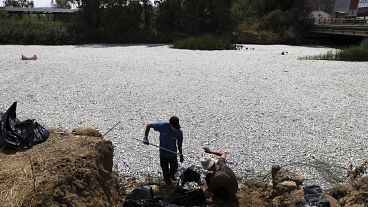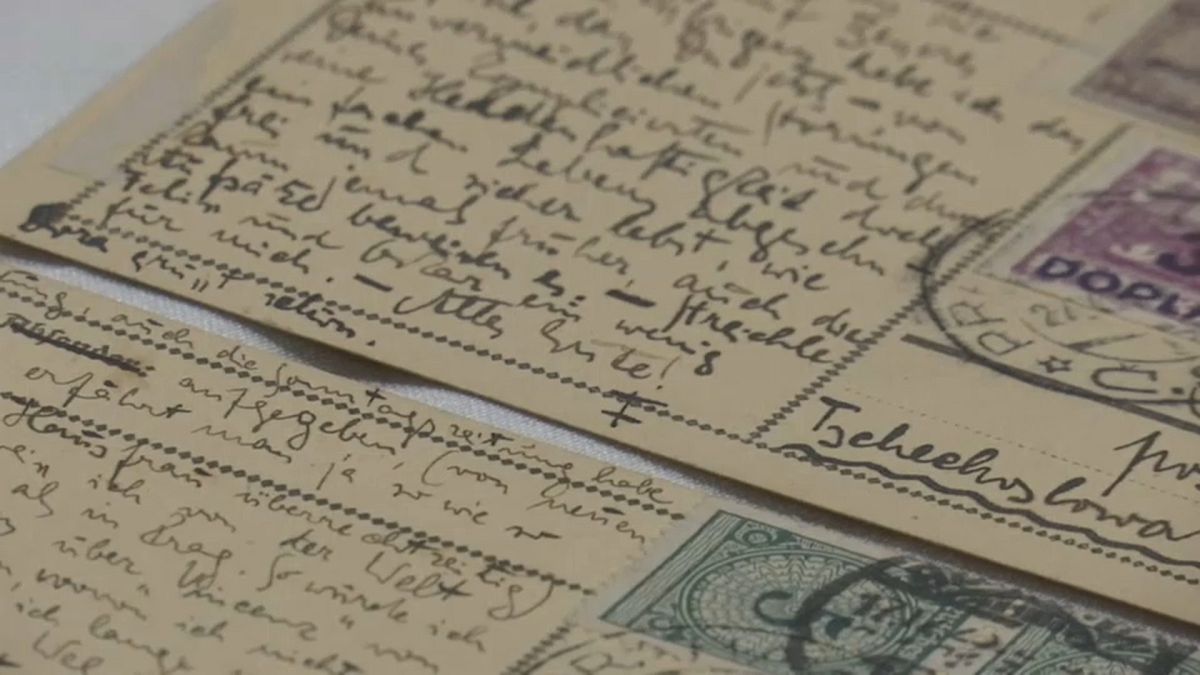Before his death in 1924, Kafka left all of his work to his friend and editor Max Brod, instructing him to burn every manuscript without reading it.
Israel's National Library unveiled a wealth of unpublished works by Franz Kafka on Wednesday.
It came at the end of a complex legal battle over a portion of the Prague-born author's literary estate.
Before his death in 1924, Kafka left all of his work to his friend and editor Max Brod, instructing him to burn every manuscript without reading it.
Brod ignored his friend's wishes and set about publishing the many papers bequeathed to him.
He posthumously published most of the canonical literary texts associated with Kafka, like "The Trial" and "The Castle".
The author was not widely known in his time and only a fraction of his work was published when he was alive. Due to the publication efforts of Brod, however, Kafka's legacy is one of the most celebrated writers of the 20th century.
Brod died in 1968 and the remaining unpublished manuscripts were kept by his secretary Esther Hoffe. Hoffe passed down the papers to her daughters Eva Hoffe and Ruth Wiesler, inciting a long legal battle between the family and Israeli authorities over the rights to the manuscripts. Fittingly, much of Kafka's literature revolves around long bureaucratic battles.
Israel's National Library eventually won the rights to the archives with court hearings ending in 2016. Since then, it has been gathering the collection from locations across Israel and Germany, collecting the final part just two weeks ago from a bank vault in Switzerland.
The material revealed at the library includes hundreds of personal letters to Brod and others, three draft versions of "Wedding Preparations in the Country", a notebook in which he practised Hebrew and even drawings.
"Parts of them [drawings] are known, others aren't so - that's maybe one of the most important things... All the writings by Kafka that we have now in our custody will be digitised and will be open for the public worldwide," said Stefan Litt, humanities curator at Israel's national library.
The curator hopes that some of the collection would be available online by the end of 2019.












